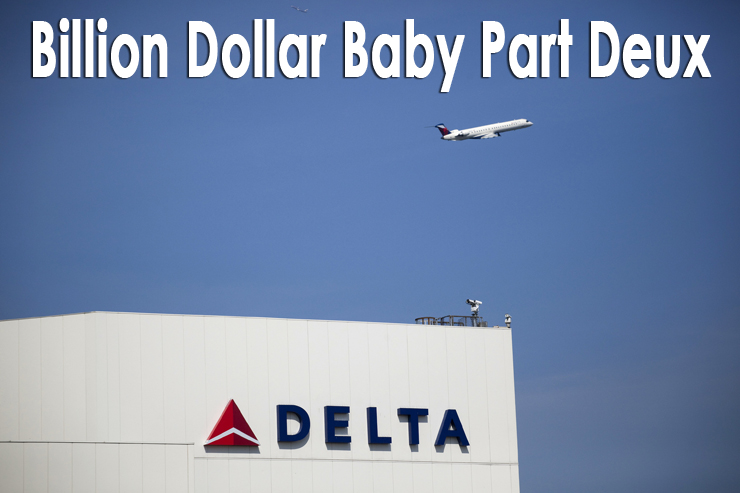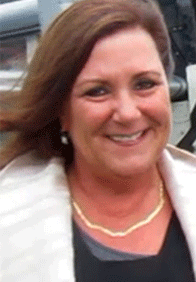
 Security
right now is the word that is on everyone’s mind and agenda. Security
right now is the word that is on everyone’s mind and agenda.
“Delta Cargo is working closely
with the industry, the TSA and the forwarding community to ensure that
100 percent inbound screening is implemented as effectively as outbound
screening was achieved.”
Neel Shah, Senior Vice President &
Chief Cargo Officer for Delta Cargo, has much on his mind these days.
Security is right up there as most important,
now and in the future.
“What we are doing differently in
2011 is Delta Cargo is playing a more vocal role in changing the mindset
of how all communities look at screening.
“We simply cannot rely on screening
at the aircraft to be the only solution.
“Partnership between carriers, regulatory
authorities, forwarders and shippers continues to be essential.
“In our minds, (and many others)
moving ahead this year into next, the critical success factor for air
cargo security has got to be cooperation within the air cargo industry
and between the TSA and foreign authorities.
“Unless the TSA and, more broadly
speaking, the entire U.S. government focuses the necessary resources
on reviewing the process and timeline by which foreign security programs
are validated and placed into the TSA's National Cargo Security Program
(NCSP), we risk significant disruptions to the global supply chain.
“It's critical that we get more
foreign programs under review and certified into the NCSP in the next
few months, especially if the TSA is considering an accelerated deadline
for 100 percent inbound screening.
“Threats continue to evolve, and
so we believe a continued, multi-layered approach towards security is
the best option.
“Forwarders need to play a greater
role in screening.
“Outbound screening only works because
of forwarder participation in CCSP.
“In places like Europe, where many
forwarders have already invested in screening equipment per local requirements,
we would expect more recognition of the screening they are already doing
themselves.
“Bigger forwarders will be less
impacted by this because they have already made investments; the smaller
and midsize forwarders face the greatest risk/reward based on their
involvement.
“Forwarders will need to play a
greater role in data submission to help the CBP target risks farther
upstream in the supply chain and long before the freight is ever tendered
to the airline.
“Munich in early May afforded Delta
Cargo an excellent venue with Air Cargo Europe to also host a Forum
of our key European customers there,” Neel Shah tells FlyingTypers.
Mr. Shah is a smart guy who knows how
to market and also knows that numbers don’t lie.
Remember, Neel Shah is the first top executive
in our experience at Delta (which dates back to John Pogue in 1973)
who has flatly stated that he will move Delta into a billion dollar
cargo business.
So of course every time we see Neel, whether
in Bangkok, Phoenix or Munich (just three of the many cities in the
DL system where he has spent time in the past month) we wonder,
How Goes The Billion Dollar Baby?
If the above sentiments are any clue,
Neel, while keeping his eyes on the prize also realizes that getting
to where he and his team have decided to land includes consideration
for much more than just financials.
”We’ve led the U.S. carriers
in revenue, yield and CTM growth, and we are very proud of our Q1 results,”
Neel Shah assures.
“Right now, we are well ahead of
plan for the year.
“We forecast growth this year, but
the 42 percent increase in revenue that we experienced in the first
quarter was surprising especially because the impact of fuel to the
airline has been significant.
“Speaking of fuel, we have taken
several proactive measures to address the increase.
“We’ve repositioned our fuel
hedges by converting nearly all WTI hedge positions to Brent crude or
heating oil.
“We have also reduced the schedule
by 4 percentage points in the second half of 2011 by drawing down capacity
in the underperforming Trans Atlantic market.
“Our moves, in conjunction with
our joint venture partners and through the restructuring of our Memphis
hub, are responsible actions to match market demand.
“Delta has also taken a bite out
of our less fuel efficient jets by accelerating retirement of 120 of
our least efficient aircraft over the next 18 months, including DC9-50s,
our Saab turbo-prop fleets, and 60 50-seat regional jets.
“In the cargo business unit, we
have not seen a dip in the business.
“We are actually growing at greater
than expected rates.
“In terms of markets, all regions
are growing for us at Delta Cargo.
“We’d certainly like to see
a stronger recovery in the Trans Atlantic markets, but overall, we are
encouraged by the increases in volume.
“This wouldn’t be the airline
industry if there weren’t surprise developments.
“The unrest in the Middle East has
forced us to suspend our service into Cairo and Amman, which were two
lucrative markets.
“And, of course, the Japan earthquake
had significant short-term effects which will continue to impact us
in the medium term as the Japanese struggle to recover their lost manufacturing
capability.
“In the medium to longer term, I
believe that the demand both into and out of Japan will be very robust
as the country rebuilds and as Japanese companies reenter the global
supply chain.
“Very exciting for all of us at
Delta Cargo are several products under development that we will be ready
to talk about in the latter half of 2011.
“For the first half of 2011, our
focus has been on reinforcing our current processes for the existing
product line.
“‘Disciplined Execution’
is the mantra for Delta Cargo personnel right now.
“In Atlanta and Los Angeles this
month, we will begin using ‘Kold Karts,’ developed by Toffelmire
Freight Services.
“The Kold Kart is a temperature
controlled, air cargo container transport dolly that allows perishable
air cargo to be delivered to and from the door of an aircraft under
constant refrigeration.
“Prior to the invention of the Kold
Kart, the only missing link in the air cargo cold chain was the airport
tarmac area.
“We are placing much of our development
focus (and budget) on building eFreight and improving Cargo 2000 capabilities.
“I have given my team the goal of
establishing a clear path toward achieving top belly carrier status
in eFreight adoption, and driving towards ‘top-tier’ industry
system performance by achieving cores of 90 percent for DEP and 95 percent
for NFD by the end of the year.
“We are also reintroducing our air
conditioned pet vans in Atlanta for the summer.
“Delta moves a significant number
of live animals each year, and part of our ‘disciplined execution’
focus is on ensuring that Delta’s Pet First product is safe, secure
and reliable.
“We also continue to expand our
scope and capabilities within our Variation Pharma network.
“I’m proud of the change we
have been able to make in the value that Delta places on Cargo at the
highest levels of our company. Recently Delta hosted our annual CEO
Forum, where senior leaders from our top customers met with Delta’s
CEO Richard Anderson and our President, Ed Bastian.
“The strong commitment that Delta
Cargo enjoys from our CEO all the way down has been a major transformation
within our corporate culture.
“When I arrived at Delta, I committed
to building a more customer-centric organization, and we have certainly
achieved that.
“At our CEO forum for the last two
years, we have received high marks for investments we have made in our
sales teams, our call centers and our communications strategies.
“Transparency of information still
challenges us, as it does most of the industry.
“We have made significant improvements
in planeside and warehouse scanning which are now starting to pay significant
benefits in terms of providing accurate, dependable and current information
for our customers.
“But, it is still a work in progress.
“Consistency of execution is the
other area where I continue to place focus. We are much, much better
than we were and getting better every day with needed consistency being
an issue only in a few stations. “Unfortunately,
those few stations are important stations, so I spend a lot of time
working with those teams to improve dependability.
“But in addition to everything else,
the need industry wide right now is for all of air cargo to cooperate
on security.
“The need to work together, acknowledge
other countries’ programs, and implement similar security procedures
earlier in the supply chain are critical.
“Advance manifesting – getting
data on what we are shipping formatted correctly and filed with the
appropriate regulatory authorities – is where we are heading as
an industry.
“It is much easier if we build those
capabilities ourselves, rather than having them forced upon us.”
Geoffrey/Flossie
|



